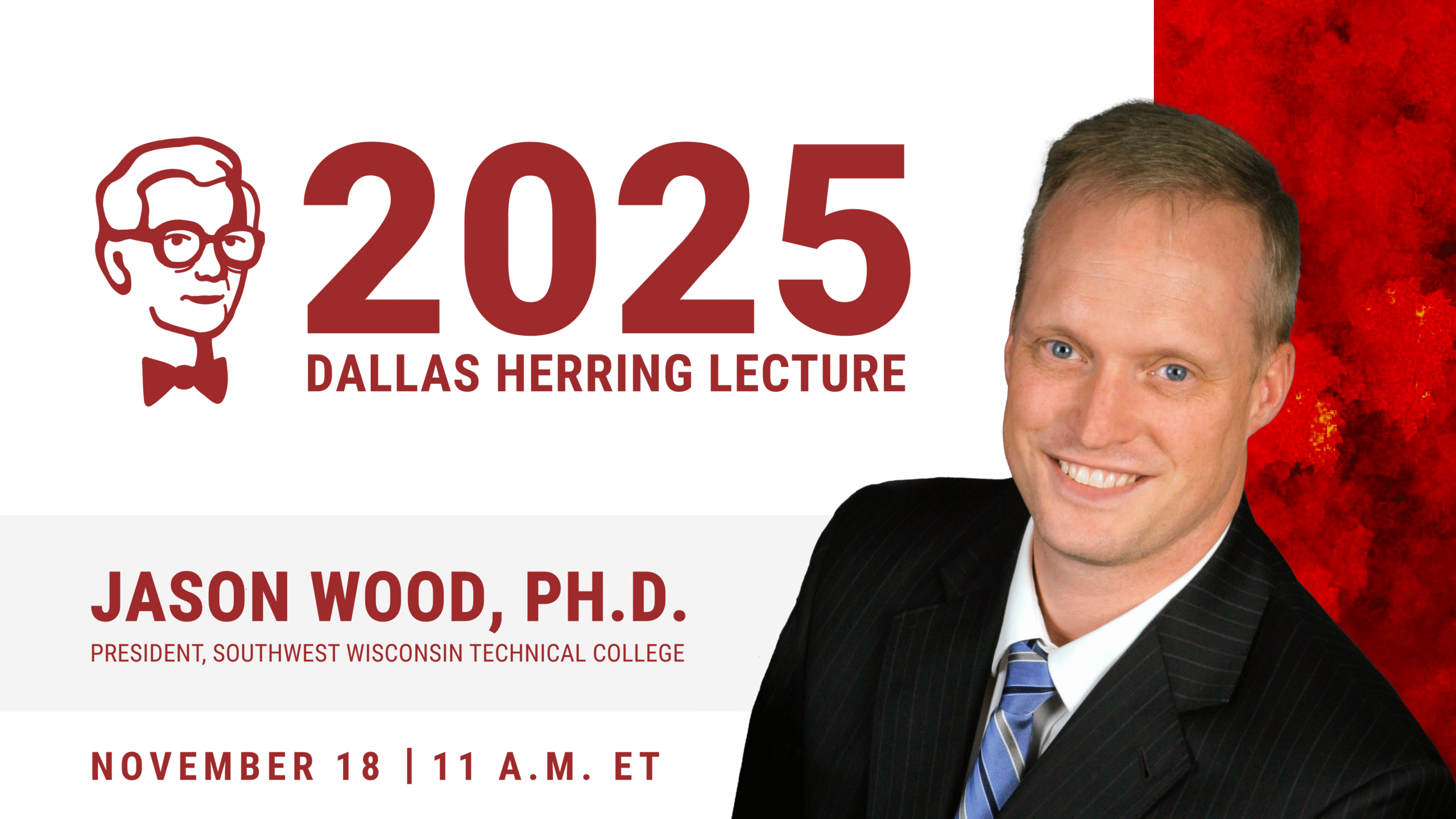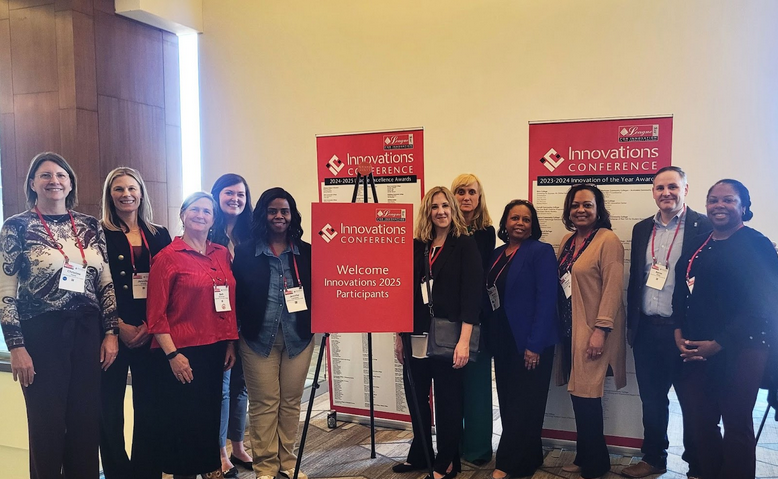Belk Center Announces Expansion of Teaching & Learning Hubs
Launch of Central and Piedmont Hubs further advances mission of student success and equity in learning.
The Belk Center for Community College Leadership and Research, in partnership with Achieving the Dream and the NC Student Success Center, is pleased to announce the statewide expansion of the NC Teaching & Learning Hubs – a student success and education equity program that connects educators and creates professional development opportunities for community college leaders across North Carolina.
Initially launched in East and West regions of the state in September 2021, the Hubs have complemented individual colleges’ teaching and learning efforts to support scalable, sustainable professional learning activities for full-time and part-time faculty. Now, due to their inaugural success, the program is expanding to support educators in the Central and Piedmont regions, and welcoming four new colleges to the East Hub – furthering the Belk Center’s shared mission of fostering student success around the state.
“We are pleased to expand the Teaching & Learning Hubs in the Central and Piedmont regions,” says Audrey Jaeger, Ph.D., W. Dallas Herring Professor with the NC State College of Education and executive director of the Belk Center. “With these additions, we now have the ability to engage all of the state’s 58 community colleges – a significant step in providing professional development by connecting educators across North Carolina.”
Since 2021, the Hubs have worked with local campus networks to offer virtual and face-to-face workshops and seminars – helping educators learn about, adopt, test and scale evidence-based strategies that have increased equitable student success outcomes across the nation. And to ensure that local area needs are met, Hub programming is designed in close collaboration with local educators and campus leaders. To date, programming topics have explored evidence-based pedagogies and practices to build student learning; validated high impact practices; and culturally responsive pedagogies to build equity and engage first-generation students, students of color and low-income students, among others.
For example, an “Equitizing the Syllabus” workshop guided faculty in differentiating between equality, diversity, equity and justice as context to designing inclusive learning environments. Using the USC Rossier/Center for Urban Education’s six equity-minded principles to course syllabi, an overview of culturally responsive teaching principles was explored. In another workshop, Transparency in Learning and Teaching (TILT), educational research behind the concept of transparent teaching/learning was explored to help faculty in the design of class activities and assignments. Workshop outcomes included a draft assignment/activity, and a concise set of strategies for designing transparent assignments and class activities.
“The Teaching & Learning Hubs have provided a collaborative space for our affiliate college faculty and professional learning leaders to come together to analyze, discuss, review and improve student learning in the classroom. There are key takeaways and direct applications that faculty can incorporate into their teaching and learning immediately after each professional learning experience,” says Natasha Harris, director of faculty and staff development at Wilkes Community College and co-director of the West Hub. “There is tremendous value in the relationships and networking that is taking place across our Hubs – it has been exciting to see these collaborative efforts in the works.”
While early plans included the possibility of launching a larger number of Hubs, success of increased collaboration within the East and West Hubs led the partner organizations to believe that North Carolina’s 58 community colleges will be better served through four distinct groups:
East Hub
Co-hosts: Carteret and Lenoir
Bladen, Brunswick, Cape Fear, Coastal Carolina, Craven, James Sprunt, Pamlico, Robeson, Sampson and Southeastern. New additions: Beaufort, COA, Martin and Roanoke-Chowan.
West Hub
Co-hosts: Wilkes and Catawba Valley
AB Tech, Blue Ridge, Caldwell, Cleveland, Gaston, Haywood, Isothermal, Mayland, McDowell Tech, Mitchell, Southwestern, Surry, Tri-County and Western Piedmont.
Piedmont Hub
Co-hosts: Forsyth Tech and Davidson-Davie
Central Piedmont, GTCC, Montgomery, Randolph, Richmond, Rockingham, Rowan-Cabarrus, South Piedmont and Stanly.
Central Hub
Co-hosts: Durham Tech and Central Carolina
Alamance, Edgecombe, Fayetteville Tech, Halifax, Johnston, Nash, Piedmont, Pitt, Sandhills, Vance-Granville, Wake Tech, Wayne and Wilson.
“The Teaching & Learning Hubs provide resources for professional development that smaller colleges may not have access to due to budget or availability. They also allow same-discipline faculty and staff a place to network regionally, building relationships that encourage the Hub’s work across our affiliate campuses,” says Kelly Sorenson, an English and humanities faculty member at Lenoir Community College and co-director of the East Hub. “The sharing of resources and talent at the local level creates a sense of community and working towards the same goal of increased student success and we are incredibly excited for the opportunity to expand the program statewide.”
About the Belk Center: The Belk Center for Community College Leadership and Research, at North Carolina State University, develops and sustains exceptional community college leaders who are committed to advancing equitable college access and student success, the social and economic mobility of their colleges’ students, and the economic competitiveness of their regions. The Center provides professional development and research related to current and emerging student success opportunities and challenges facing community college leaders and policymakers in North Carolina and the nation. For more information, please visit www.belk-center.ced.ncsu.edu.
About Achieving the Dream: Achieving the Dream (ATD) leads a growing network of more than 300 community colleges committed to helping their students, particularly low-income students and students of color, achieve their goals for academic success, personal growth, and economic opportunity. ATD is making progress in closing equity gaps and accelerating student success through a unique change process that builds each college’s institutional capacities in seven essential areas. ATD, along with nearly 75 experienced coaches and advisors, works closely with Network colleges in 45 states and the District of Columbia to reach more than 4 million community college students.
About NC Student Success Center: The North Carolina Student Success Center (NCSSC) supports North Carolina’s 58 community colleges as they provide education and a broad range of services to more than 700,000 students each year. NC community colleges are working to improve completion rates for their students. Much of the NCSSC’s work focuses on helping colleges undertake the large-scale, institution-wide change — such as implementing guided pathways — that is essential to attain this goal.
- Categories:


